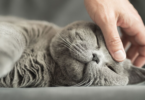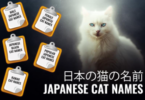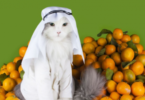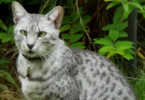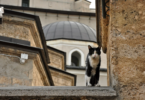For centuries, cats have held a special place in German hearts and hearths. These furry companions are admired for their grace, independence, and undeniable cuteness. Choosing the perfect name for your feline friend is an important decision, and a German name can add a touch of sophistication and cultural flair to your cat’s identity. This comprehensive guide delves into the fascinating world of German cat names, offering a rich tapestry of options, historical influences, and practical tips to help you find the purrfect moniker for your beloved pet.
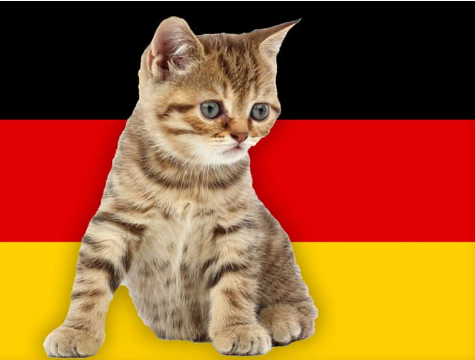
A Journey Through History: The Roots of German Cat Names
Germany’s rich history and cultural tapestry have significantly influenced the way Germans name their cats. Here’s a glimpse into the fascinating origins of German cat names:
- Mythology and Folklore: Germanic mythology is brimming with powerful and symbolic creatures. Names like Freya (goddess of love and beauty), Odin (the Allfather), and Brunhilde (a fierce Valkyrie) evoke a sense of grandeur and can be fitting for regal felines.
- Nature and the Environment: Germans have a deep appreciation for nature, reflected in their love for nature-inspired cat names. Blümchen (little flower), Fluss (river), and Berg (mountain) are all beautiful options that evoke a sense of peace and tranquility.
- Descriptive Names: Germans often choose names that reflect a cat’s physical appearance or personality. Streifen (stripes), Schnurr (whiskers), and Raupe (caterpillar – for a fluffy cat) are all cute and descriptive choices.
- Food and Drink: A touch of whimsy can be found in German cat names inspired by delicious food and beverages. Käse (cheese), Keks (cookie), and Latte (coffee) are all fun and memorable options.
Distinctive Categories: Unveiling the Nuances of German Cat Names
German cat names can be broadly categorized, offering a range of options to suit your cat’s personality and your preferences.
- Classic and Popular: Just like any other culture, Germany has its own set of popular cat names. Felix (meaning lucky), Luna (moon), and Moritz (Moorish prince) are all well-loved choices that have stood the test of time. (Table 1 provides a list of the top 10 most popular German cat names for both males and females)
Top 10 Most Popular German Cat Names
| Rank | Male Names | Female Names |
|---|---|---|
| 1 | Felix | Luna |
| 2 | Moritz | Mimi |
| 3 | Balou | Minka |
| 4 | Sammy | Lilly |
| 5 | Smokey | Lucy |
| 6 | Tiger | Kitty |
| 7 | Charlie | Paula |
| 8 | Leo | Emma |
| 9 | Buster | โซฟिया (Sofia) |
| 10 | Theo | Chloé |
- Unique and Meaningful: For those seeking a name with a deeper meaning, German offers a wealth of options. Edeltraud (noble woman), Siegfried (victorious peace), and Sonnenblume (sunflower) are all beautiful names with powerful connotations.
- Funny and Playful: A little humor can go a long way. Schnitzel (a breaded cutlet), Gurke (pickle), and Stinktier (skunk) are all sure to raise a smile (and maybe a sniff!)
Choosing the Purrfect Name: Practical Tips for Cat Owners
Finding the perfect name for your cat is a deeply personal experience. Here are some helpful tips to guide you:
- Consider your cat’s personality. Is your cat playful, regal, or a cuddly lap cat? Choose a name that reflects their unique character.
- Think about pronunciation. Can you easily pronounce the name? Will your cat be able to recognize it?
- Say the name out loud. Does it sound good coming off your tongue? Does it flow well?
- Keep it short and sweet. Cats tend to respond best to short, one or two-syllable names.
Beyond the Basics: Exploring Additional Resources
Here are some additional resources to help you on your German cat naming journey:
- German Baby Name Websites: Many German baby name websites also include sections for pet names. These can be a great source of inspiration, even if you don’t choose a human name for your cat.
- German Dictionaries: If you find a German word you like, look it up in a dictionary to understand its meaning and pronunciation. This can help you discover hidden gems that perfectly suit your cat.
- German Cat Forums and Online Communities: Connecting with other German cat lovers online can be a fun way to share ideas and get recommendations for unique names.
- Breed-Specific Resources: For some cat breeds, there might be traditional German names associated with them. Look into breed-specific resources to discover these hidden treasures.
FAQs: Frequently Asked Questions about German Cat Names
- What are some gender-neutral German cat names?
There are several options for gender-neutral German cat names. Here are a few examples:
* Kimi (meaning "precious" or "valuable")
* Asche (meaning "ash")
* Wolke (meaning "cloud")
* Nebel (meaning "fog")
* Blitz (meaning "lightning")
- Can I use a human name for my cat?
Absolutely! Many Germans choose human names for their cats. Just keep in mind the tips mentioned earlier about pronunciation and length.
- Is it okay to give my cat an English name?
Of course! There are no hard and fast rules when it comes to naming your cat. The most important thing is that you love the name and it feels right for your furry friend.
Conclusion
The world of German cat names is rich, diverse, and full of possibilities. By delving into the history, cultural influences, and different naming categories, you can discover a name that not only sounds beautiful but also reflects your cat’s unique personality. So, embrace the adventure, explore the options, and find the purrfect German name for your beloved feline companion.
Additional Resources
- https://www.behindthename.com/names/usage/german (Behind the Name – German Names)
- https://dict.leo.org/german-english/ (LEO German-English Dictionary)
- Deutsche Katzenfreunde e.V. (German Cat Fanciers’ Association): https://www.katzenfreunde.de/ (Note: This website is in German)
Remember, choosing a name for your cat should be a fun and enjoyable experience. With a little creativity and the guidance provided in this comprehensive guide, you’re sure to find the purrfect German name for your furry friend.

